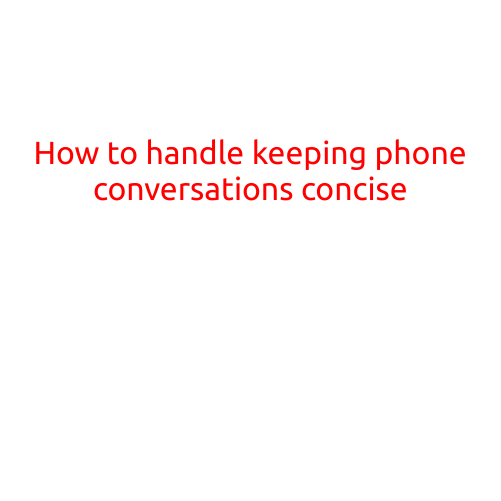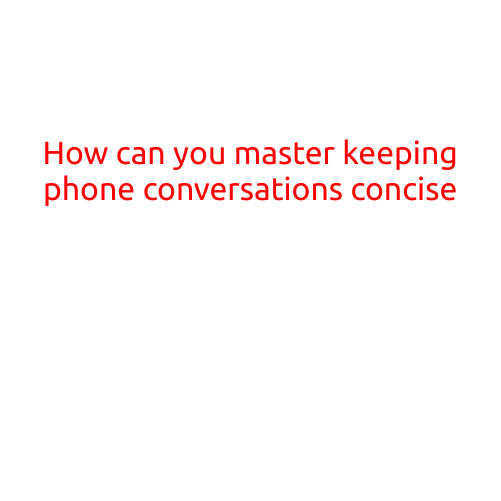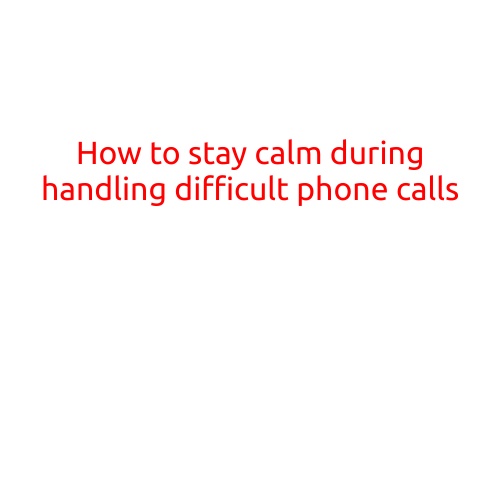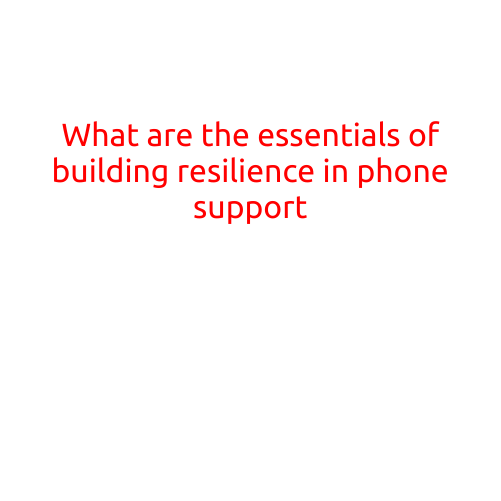
How to Handle Keeping Phone Conversations Concise
In today’s fast-paced world, time is a valuable commodity. With the constant demands on our attention, it’s essential to optimize our communication methods to ensure effective and efficient interactions. One often-overlooked aspect of communication is phone conversations. When we find ourselves on a phone call, it’s easy to get caught up in the moment and let the conversation drift on longer than necessary. However, being able to handle keeping phone conversations concise is a crucial skill to master. In this article, we’ll explore the importance of concise phone conversations and provide you with practical tips to help you achieve this.
Why Concise Phone Conversations Matter
There are several reasons why concise phone conversations are essential:
- Time-saving: Long phone calls can eat into your schedule, leaving you with fewer hours to devote to other tasks or responsibilities.
- Productivity: Wasting time on lengthy conversations can reduce your overall productivity, making it challenging to complete tasks and meet deadlines.
- Distracting others: Long phone calls can disrupt the flow of work or personal life, causing others to be distracted or interrupted.
- Builds expectations: People are more likely to stay engaged and focused when conversations are concise and to the point.
Practical Tips for Keeping Phone Conversations Concise
Now that we’ve highlighted the importance of concise phone conversations, let’s dive into some practical tips to help you achieve this:
- Plan ahead: Before the call, define the purpose and scope of the conversation. This will help you stay focused and ensure you’re using your time wisely.
- Use a clear and concise introduction: Start the conversation by clearly stating the purpose and scope of the call. This sets the tone for a concise and efficient conversation.
- Listen actively: Pay attention to what the other person is saying and respond thoughtfully. Avoid interrupting or dominating the conversation, which can lead to a lengthy and unproductive discussion.
- Use a “parking lot” technique: If you need to discuss a topic that’s not directly related to the primary purpose of the call, acknowledge it and “park” it for later discussion. This prevents tangents and keeps the conversation on track.
- Use a timer: Set a timer for a specific amount of time (e.g., 30 minutes) and commit to wrapping up the conversation by that time. This will help you stay focused and avoid diving into lengthy discussions.
- Take notes: Jot down key points and action items during the call to help you stay on track and ensure you don’t forget anything important.
- Summarize and confirm: At the end of the call, summarize the key points and confirm any action items or next steps. This helps prevent miscommunication and ensures everyone is on the same page.
Conclusion
Keeping phone conversations concise requires a combination of planning, active listening, and effective communication skills. By applying the practical tips outlined in this article, you’ll be better equipped to handle phone conversations efficiently and effectively. Remember, concise phone conversations are not only time-saving but also essential for building expectations and fostering productive relationships.





